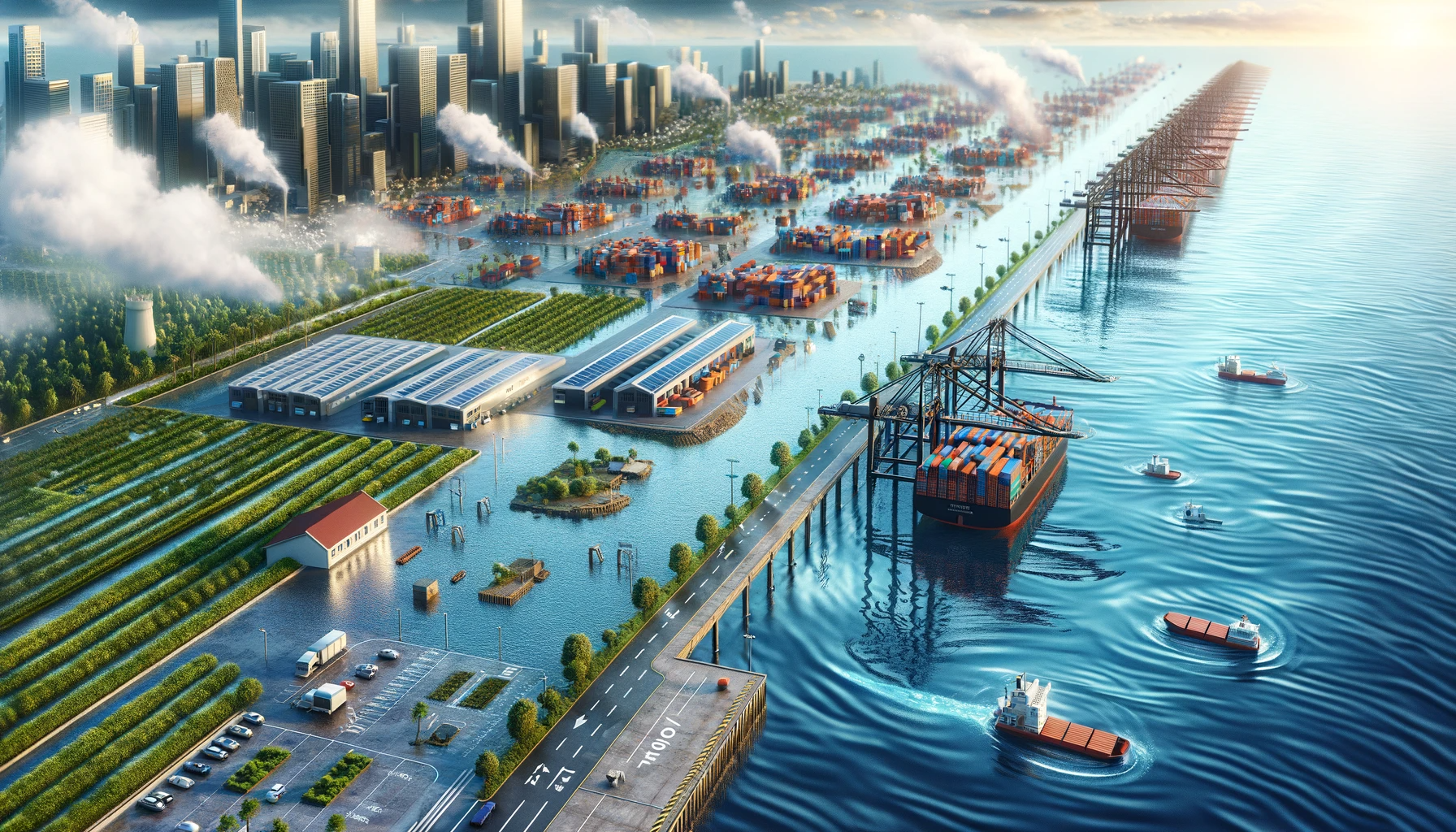The impact of climate change on global supply chains is no longer a distant, hypothetical concern; it is a pressing reality reshaping the landscape of international commerce. From rising sea levels disrupting transport routes to extreme weather events wreaking havoc on production processes, the consequences of climate change have become an urgent and critical topic for businesses worldwide.
As the Earth’s climate continues to undergo unprecedented changes, the vulnerabilities of global supply chains are laid bare. Rising sea levels, attributed to the melting polar ice caps, pose a significant threat to maritime transportation—a linchpin of international trade. Ports and shipping lanes, once considered reliable conduits for the movement of goods, are now at risk of being submerged or rendered impassable, disrupting the seamless flow of products across the globe.
Extreme weather events, intensified by climate change, are increasingly disrupting manufacturing and production facilities. From hurricanes and typhoons to wildfires and floods, no corner of the globe is immune to the far-reaching consequences of a changing climate. These events not only halt production but also lead to the destruction of infrastructure, causing delays and financial losses that reverberate throughout the supply chain.
In response to these challenges, businesses are being forced to reevaluate and fortify their supply chain strategies. Resilience has become the buzzword as companies seek to build robust systems capable of withstanding the unpredictable nature of climate-related disruptions. This includes diversifying sourcing locations, implementing climate-resilient infrastructure, and adopting advanced technologies to monitor and mitigate risks in real-time.
Furthermore, companies are recognizing the importance of sustainable and environmentally friendly practices as a means of mitigating their contribution to climate change. The adoption of circular economies, where resources are recycled and reused, is gaining traction as businesses strive to reduce their carbon footprint. This shift towards sustainability not only aligns with global efforts to combat climate change but also enhances the long-term viability of supply chains.
Collaboration is emerging as a key component in addressing the challenges posed by climate change. Governments, businesses, and non-governmental organizations are increasingly coming together to share data, expertise, and best practices. The collective effort aims to create a more resilient and adaptive global supply chain network that can weather the storms—both literal and metaphorical—of a changing climate.
The impact of climate change on global supply chains is a rapidly evolving and critical topic that demands immediate attention and strategic adaptation. Businesses must proactively assess and fortify their supply chain strategies to navigate the challenges presented by rising sea levels and extreme weather events. Embracing resilience, sustainability, and collaboration is not only a response to the current climate crisis but also a strategic imperative for ensuring the continued viability of global supply chains in the face of an uncertain future.

